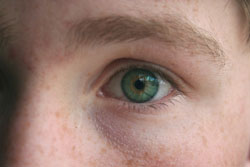 A study published in Acta Dermato-Venereologica has shown a link between psychological stress and skin issues, excluding pimples. Although previous studies have shown links between skin symptoms and stress, those particular studies did not use standardized tools and only involved small patient samples. They also focused on single skin diseases rather than a broad range of skin issues.
A study published in Acta Dermato-Venereologica has shown a link between psychological stress and skin issues, excluding pimples. Although previous studies have shown links between skin symptoms and stress, those particular studies did not use standardized tools and only involved small patient samples. They also focused on single skin diseases rather than a broad range of skin issues.
Dr. Gil Yosopovitch, chair of the department of dermatology at the Lewis Katz School of Medicine at Temple University (LKSOM) said, “Our findings highlight the need for health care/dermatology providers to ask these patients about their perceived levels of psychological stress. Disease flare or exacerbation while on treatment in the setting of increased stress may not necessarily reflect treatment failure.”
The research team focused on the link between psychological stress and presenting skin symptoms in a large randomized study of undergraduate students.
5,000 undergraduate students were questioned about their perceived stress and any skin issues they were having. The students were then divided into three groups, high stress, moderate stress and low stress.
In the high stress group, there were significantly more reports of alopecia (hair loss), pruritus (itching), flaky patches, hyperhidrosis, nail biting, scaly skin, rash on hands and trichotillomaina (hair pulling).
Prurites can be a symptom of underlying systemic disease, but is often caused by an allergic response. It can worsen due to hot or dry conditions, inflammation or psychological stress.
According to the American Academy of Dermatology, alopecia is most often a hereditary condition, but can also be caused by other factors such as medications used for hormonal imbalance or depression, or environmental factors.
Interestingly, the researchers found no correlation between stress and pimples, warts or facial rashes.
Dr. Yosipovitch also said that alternate non-prescription therapies should be considered for patients that are suffering from high levels of psychological stress presenting with skin symptoms.

